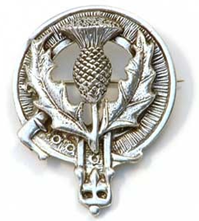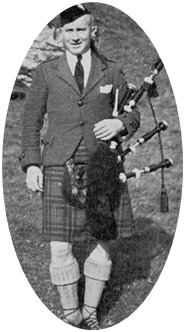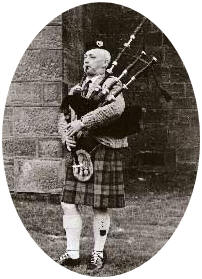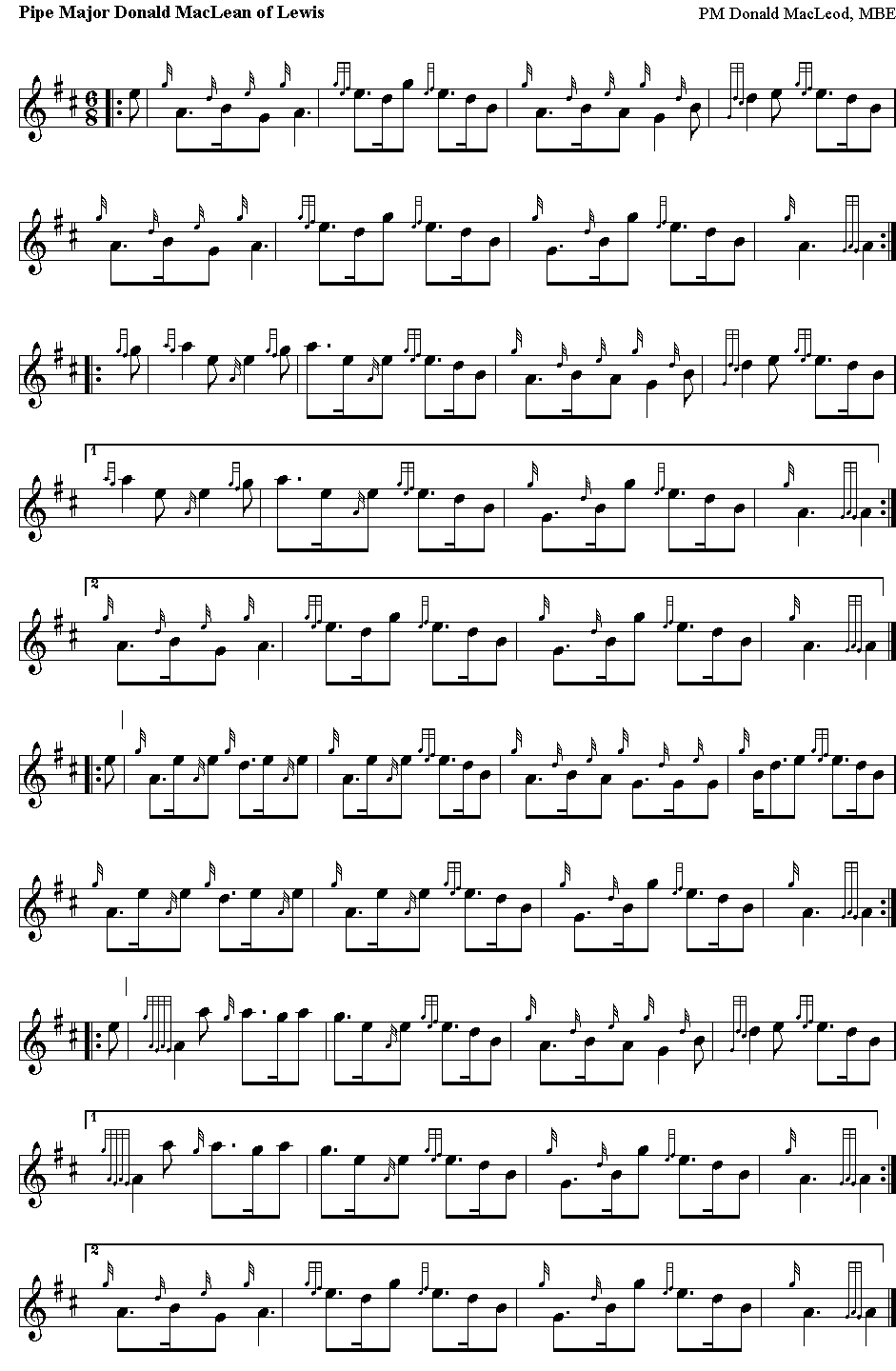
Best viewed in
Internet Explorer
Music (PDF)
Music (BMW)
Back to

Updated
05/09/2013 |

Pipe Major Donald MacLean of Lewis
Pipe Major Donald
MacLeod, M.B.E
Pipe Major
Donald MacLean
of Lewis
(1908-1964)
(shown above)
was known
variously as
“Big Donald
MacLean” and
“Donald MacLean
of Lewis,” as
recalled in
Donald MacLeod’s
popular 6/8
march.
References in
piping books to
“Pipe Major
Donald MacLean”
are generally to
him.
Born in 1908,
his interest in
the pipes began
in 1916 when his
older brother
Murdo took up
the instrument
to help in the
recovery of a
lung wound
suffered in the
Great War.
Donald borrowed
his brother’s
chanter and soon
both were being
taught by Peter
Stewart of
Barabhas.
He joined the
Seaforth
Highlanders at
age 18 in 1926
and was posted
to Aldershot,
where he came
under the strong
influence of
Pipe Major, D.
R. MacLennan,
half-brother of
the famous G. S.
In 1931, while a
Corporal with
the 1st
Seaforths, he
earned his Pipe
Major’s Standard
Certificate at
the Army School
of Piping under
Willie Ross and
became pipe
major of the 2nd
Battalion
Seaforths in
1936 – the
youngest pipe
major in the
British army at
that time. His
piping pedigree
would also
include
piobaireachd
studies with
Angus MacPherson,
son of Calum
Piobaire. Donald
MacLeod started
him on
piobaireachd
during the war
as a way to
strengthen his
fingers for
light music
playing. Big
Donald became
later became
particularly
well known as a
march player.
On June 12,
1941, he, along
with the likes
of Donald
MacLeod, John
Wilson, George
McIntyre and
many other
pipers in
the 51st
Highland
Division, were
captured in
France at St.
Valery. He would
spend the next
five years as a
prisoner of war
in Germany and
Poland. It was
during this time
that he wrote
his famous
competition
march “Major
David Manson at
Clachantrushal”
on a practice
chanter borrowed
from fellow
piper Alex
Craig. David
Manson was a
retired officer
of the Canadian
army who worked
as a Glasgow
silversmith. He
had visited
Donald’s home
before the war
and gave him a
set of engraved
silver pipes.
“Clachantrushal”
refers to a
monolith – said
to be the
largest standing
stone in
Scotland – that
stands near the
home.
At war’s end
he took over
the Scottish
Command
School of
Piping, then
moved to the
Highland
Brigade
training
school,
finally
retiring
from the
army in 1948
after 22
years.
Though he
was famous
in military
piping
circles, he
was little
known
outside of
that realm.
This changed
dramatically
in the years
following
the war. As
Seumas
MacNeill
wrote in his
1964
Piping Times
obituary of
Donald
MacLean,
“Those of us
who had
heard of him
only vaguely
were amazed
to find that
he was a
piper of the
very first
rank."
"It is
probably
true to say
that many of
the
competitions
following
the
cessation of
hostilities
were
completely
dominated by
Pipe Major
Donald
MacLean.”
He was
renowned for
his powerful
fingers and
robust
instrument,
which only
he could
blow.
MacNeill
again: “His
instrument
was a legend
itself and
few pipers
could blow
it. Those
who did were
never quite
the same
afterwards.”
He won the
Gold Medal
at Oban in
1951 with
“MacDonald’s
Salute” and
at Inverness
in 1953 with
“Black
Donald’s
March,” and
later become
a regular
adjudicator
at the games
and major
gatherings.
In 1954 he
visited
Canada with
dance-band
accordionist
Bobby
MacLeod at
the request
of the B.C.
Pipers’
Association
and was a
huge
success.
He was
an
excellent
Highland
dancer,
and he
taught
piping
and
dancing
in Skye
for some
years
before
being
offered
the job
of
managing
instruments
at the
R. G.
Lawrie
company
in
Glasgow.
Ads for
this
company
during
the
1950s
and
1960s
feature
Donald
MacLean’s
iconic
photo,
unmistakable
because
he
played
with his
right
hand on
top. If
there
was a
'Best
Dressed
Piper'
award at
a games
he
attended,
he
usually
won it.
On
August
29,
1964,
after
attending
the
Cowal
games,
he collapsed
on the
street
in the
town of
Innellan near
Dunoon.
Resuscitation
efforts
failed
and he
died
before
the
ambulance
arrived.
He was
56.

|
Pipe Major Donald MacLeod (shown above) was born in 1916 in Stornoway, Isle of Lewis, in the Scottish Hebridean Islands. He was initially taught the pipes by his father, “Doyle”, and went on to be tutored by P/M Willie Ross then John MacDonald, Inverness with whom he studied for 27 years. John Morrison of Assynt House was a benefactor to many young people in Stornoway and district; it was he who took Donald to the Northern Meeting for his first major junior competition, which he won.
He enlisted in the Seaforth Highlanders in 1937 and his Pipe Major was the well known late D. R. MacLennan. Donald was promoted to pipe major after only four years. During World War II he served in France with the 51st Highland Division, was taken prisoner by the Germans at St. Valery, escaped during a forced march and eventually managed to return to the UK. In 1945 he piped his battalion across the Rhine during an assault crossing - even though he had been advised not to do so by his commanding officer.
During his army career he was highly successful in piping, winning all major competitions. He retired from the army in 1962 and from competition in 1966, he then went on to judge young people and major adult competitions. He especially enjoyed judging at the junior competitions, often held in the local school.
The Glasgow based Scottish Pipers’ Association, each year in November, invited Donald and Duncan Johnstone to give an evening recital. It was always a very popular event and in 1977 Donald decided it was to be his farewell appearance, it was a very memorable evening.
He published six books of light music covering all types of composition, many of which are modern classics. He also published a collection of piobaireachd.
Composing always seemed effortless to him. He had a love of the countryside and of nature as the titles of many of his tunes imply. The tunes would be almost complete in his mind before he reached for a sheet of manuscript or paper, whichever was at hand. While still a competitor at the Northern Meeting, where the Jig was the final competition, the competitors were waiting for the Judges to complete their deliberations; Donald picked up a programme and began writing, a short time later, as the results were announced, he had composed a Jig which he aptly named “The Judges’ Dilemma."
He was awarded the Membership of the Most Excellent Order of the British Empire in 1978 for outstanding service to piping.
The Donald MacLeod Memorial Competition, which was established from an idea by Pipe Major Iain Morrison of Lewis, is an invitational competition held in Stornoway and celebrates Donald’s life and work. Started in 1994 by the Lewis & Harris Piping Society, it was instituted to honour “Donald Macleod, one of the best all-round pipers of the 20th century“. In addition Donald is considered one of the century’s best composers. The pipers are chosen from the best competing pipers in the world, making it a very successful and popular competition. |
| 
|
|
|
|
|
|
|




